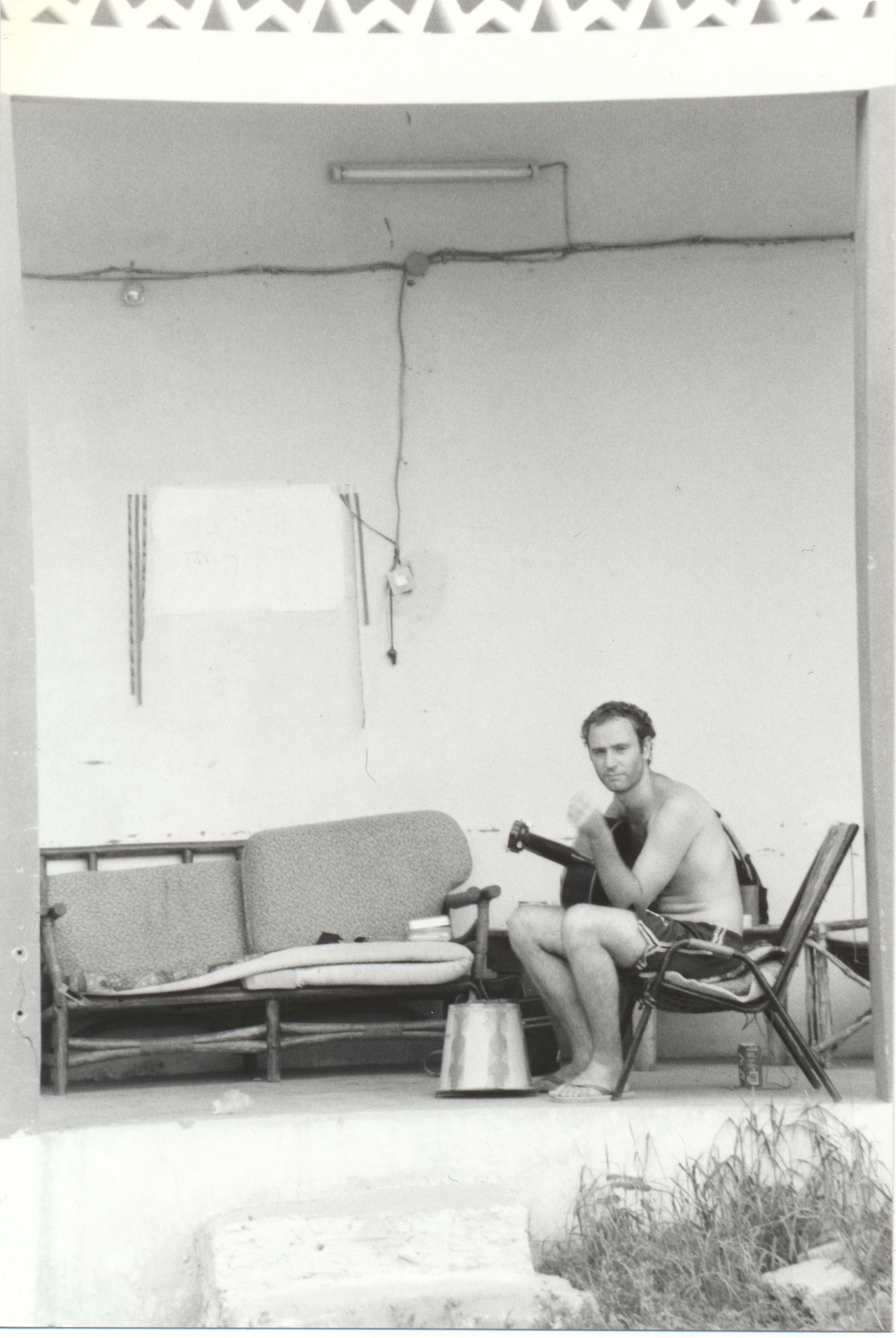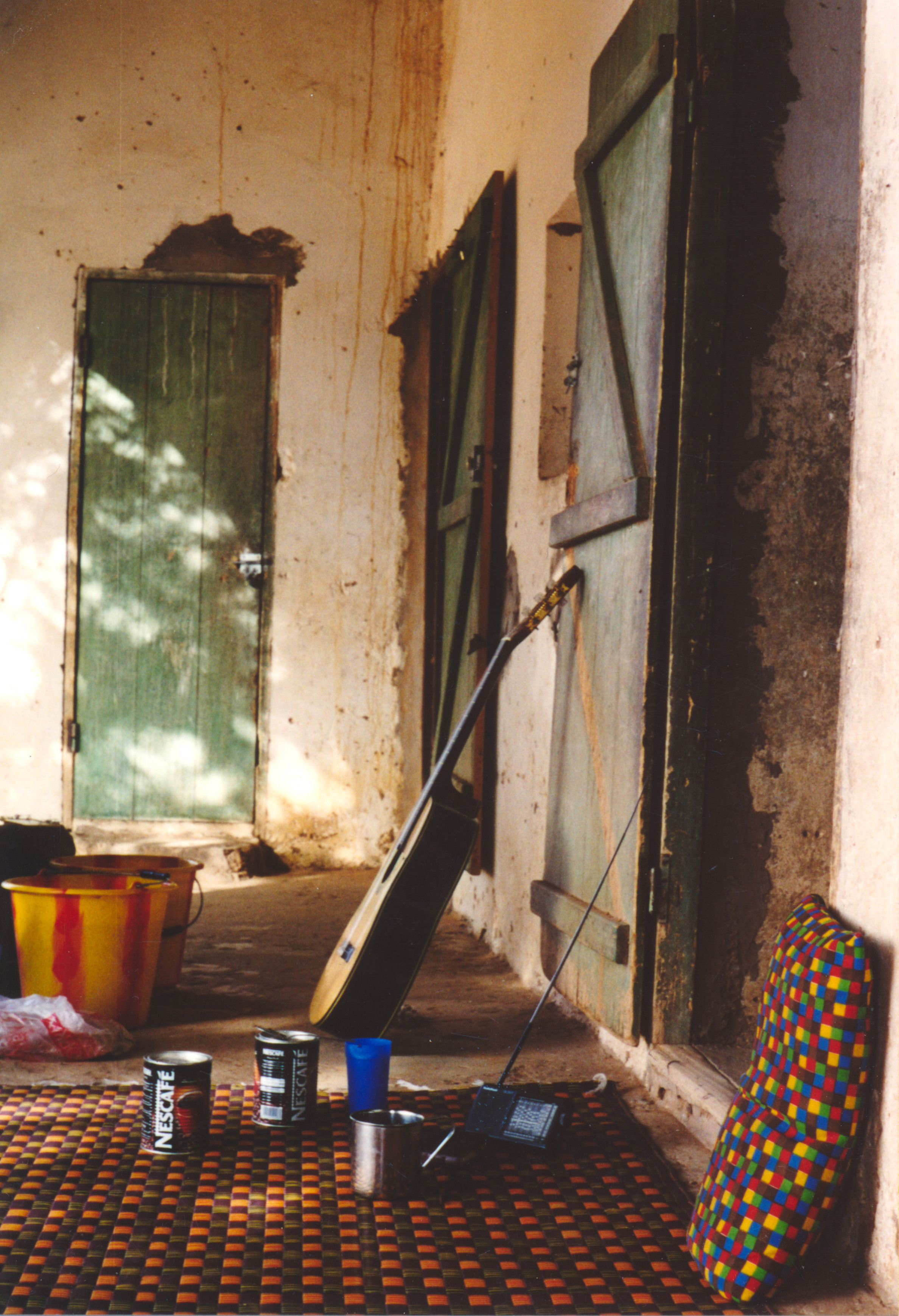Some people never become fluent in their foreign language because they are too shy to speak. Afraid of making mistakes, they keep their lips tight. With no practice comes little progress, just tentative steps forward by way of limited self-practice.
I didn’t have that problem in Mauritania. I couldn’t afford to be afraid of making mistakes. In French and in Hassaniya, I let the mistakes fly. Misconjugations, bad pronunciation, and limited vocabulary were no obstacles to my being heard. There was no choice.
I wish I could say the same about learning guitar.
It was my main hobby while in Mauritania, but my progress was so slow. Like a timid language-learner, I always felt like I wasn’t good enough to let it fly, to learn complete songs. I concentrated instead on exercises, on learning chords and building fundamentals instead of putting together what I did know to make music.

Now there were challenges. The guitar was big. The fretboard was large for my hands and the action was really high. I struggled with it, but I played enough to form calluses on my fingertips and bring chords that had seemed impossible into reach. I certainly got better over time, but still my journey was largely an intellectual one. I was fascinated by the tension and resolution in a standard 1-4-5 chord progression and stumbled upon the fact that, starting with C Major, the fifth note of any given major key was the root of the key with one more sharp note, each being a half-step down from the root’s octave. C Major has zero sharps, G Major has one (F#), D Major has two (F# and C#), and so on. When I mentioned this to a fellow volunteer who knew music and guitar, he was like, “Oh yeah, that’s the Circle of Fifths!” I was at once proud to have discovered something so fundamental but frustrated that it took so much time and work to get there on my own.
I also stumbled upon different chord voicings, though I didn’t have the vocabulary to explain it:
27 October 2002
I’ve made a lot of progress on the guitar. I’ve gotten comfortable with a couple new chord progression and have started doing barre chords, so now my potential has really expanded. I’ve still been working a lot on rhythm and that is coming, especially by using the quick-muting strum. And I’ve discovered something about different voicings of chords. Some chord progressions [sic—what I meant is voicings] are naturally in the normal order with the first degree lowest, the fourth [I meant third] next, and the fifth highest. G B D, for example [i.e., G Major]. But some are inverted … and resolve differently
Looking back, it’s clear to me now that I was interested in guitar—very interested!—and that interest was very satisfying, but I wasn’t doing what I needed to do to become fluent. Like someone studying a language without the goal of communicating, I confined myself to practicing musical conjugations and building vocabulary for a language I would never truly speak. Better to let those mistakes ring!


